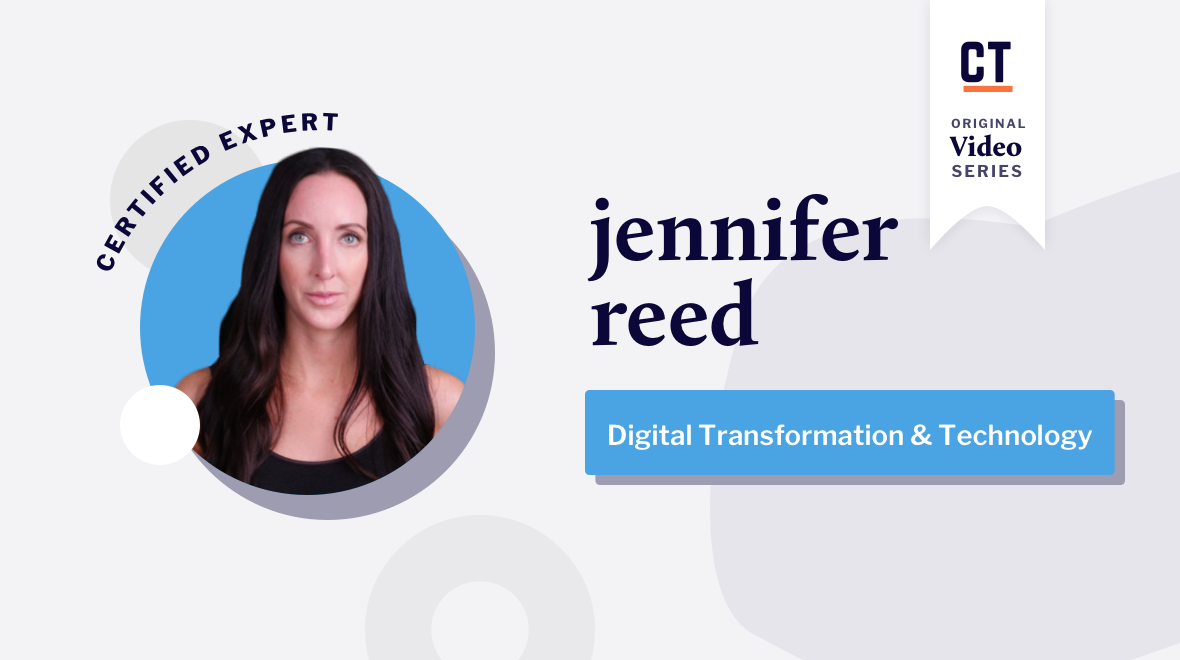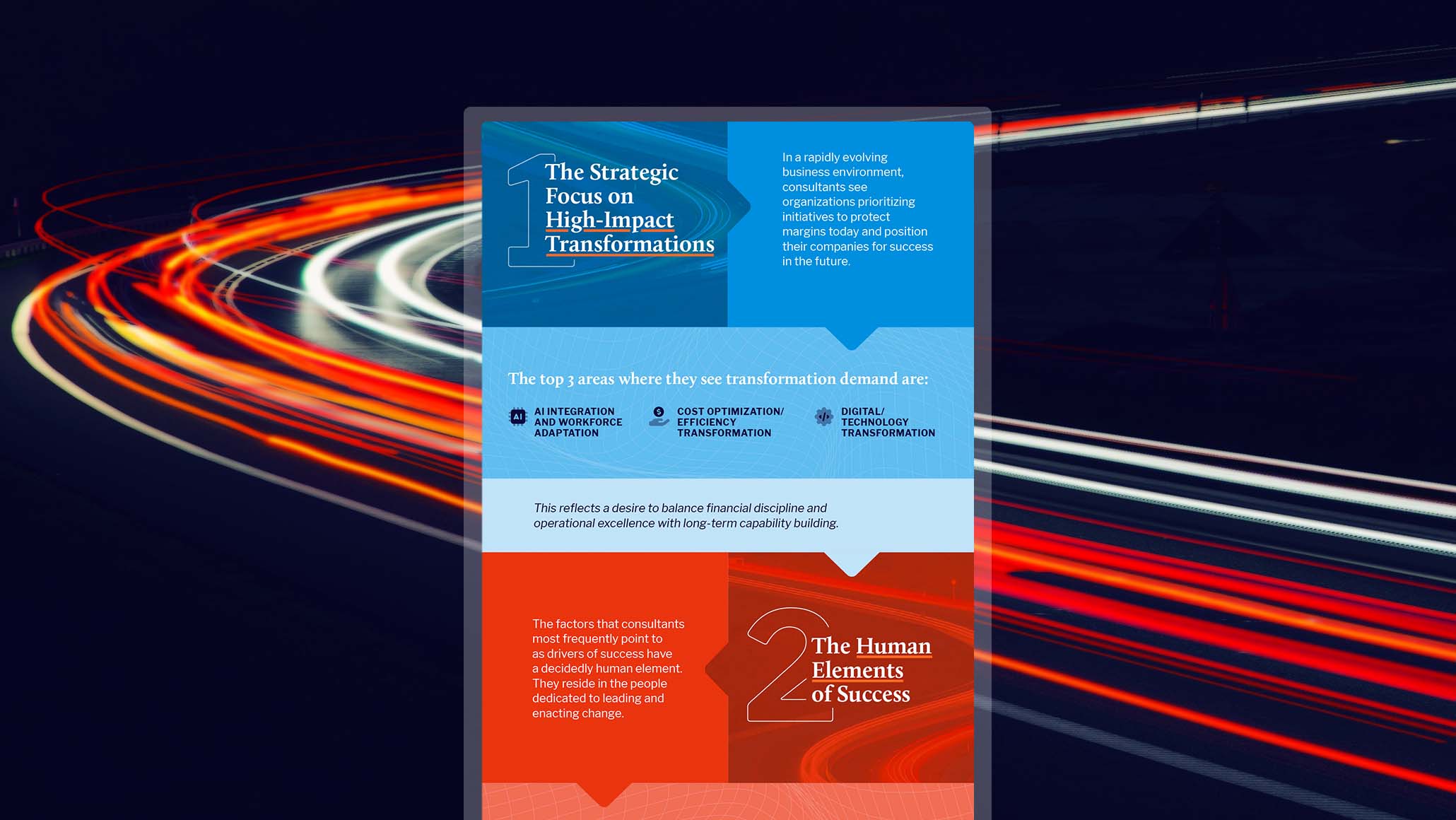Digital Transformation Consultants and the “Goldilocks Problem”

Digital Transformation Consultants
Digital transformation consultants are in high demand as businesses adapt to massive upheavals in consumer preferences and digitalization. Jennifer Reed is an independent digital transformation consultant who possesses skills in both strategy and nuts-and-bolts execution. Like many Catalant consultants, Reed has many years of experience working for big consulting firms, including KPMG and Ernst & Young.
We caught up with Reed to talk about how organizations can find the right independent digital transformation consultant and avoid common mistakes.
Digital Transformation Consultants Are in High Demand
Reed has noticed an increase in demand for digital transformation projects since the pandemic began, as clients seek to drive digital-first engagement with their customers and also support remote work for employees. The urgency with which organizations pursue those projects has also increased during the last 18 months.
“I don’t think I’ve ever worked more than I did in 2020,” says Reed. “These projects have been moving faster with shorter time cycles. The pre-pandemic 3- or 5-year roadmap has become the ‘let’s do it right now’ roadmap.”
It’s best to bring consultants in from the beginning of projects, says Reed, when the roadmap and project goals, as well as the execution plans, are first being developed.
“Having the consultant help you from the start adds so much value — you get an outside expert who can offer fresh perspectives, challenge old ways of doing things and counter the status quo,” she says.
Hiring Digital Transformation Consultants While Avoiding the “Goldilocks Problem”
Clients hiring independent transformation consultants often face a “Goldilocks Problem.” Some consultants are highly strategic — excelling at building roadmaps or high-level plans. Meanwhile, other consultants are more technically savvy, capable of working easily with developers and DevOps teams to drive execution.
Finding the “just right” consultant means finding the right balance between strategic and technical skills. The “just right” consultant can work effectively across the multiple internal cultures at the client’s organization, speaking the same language as technical teams, functional leaders, and c-suite executives.
The ability to communicate across these groups allows the digital transformation consultant to not only deliver on the project, but also to effect a seamless handoff when the engagement is complete.
“I don’t want a client to see me as a permanent solution to implementing digital transformation,” says Reed. “I work to enable or train my client teams so they can take over and be able to use the new process or technology themselves, to grow it on their own.”
Examples of Projects with Digital Transformation Consultants
With a wealth of experience as an independent digital transformation consultant, Reed has helped a number of companies execute mission-critical projects to drive growth. In one case, she worked with a large multinational organization to update the organization’s internal operations and ERP systems.
“Every country was doing things differently, so we had to start from the very beginning and have design sessions and requirements meetings in all the countries,” she says.
Reed helped focus these conversations on a basic question: “what do we want this new tool to look like and how do we get everyone in the organization to use it?”
For another client, Reed helped another large company break through internal silos with a widespread transformation effort.
“I helped them build a clear framework for success, describing the phases of the digital transformation project and exactly how to roll the project out,” she says.
Where to Find Skilled Digital Transformation Consultants
As a consultant on the Catalant platform, Reed has seen first-hand how clients are using the freelance economy to augment their internal teams during times of rapid change. No organization can keep pace without access to on-demand talent — especially highly skilled and experienced consultants.
“Agile ways of working and agile teams that blend internal talent with outside expertise are simply the way project work gets done today,” she says. “The pandemic has only accelerated existing trends around flexible ways of working and building hybrid project teams.”
Ready to find the right digital transformation consultant for your business needs?
Let’s TalkRelated Articles
Share Article












